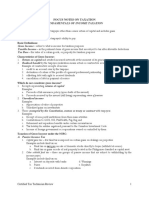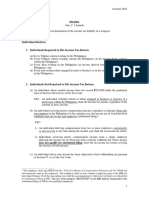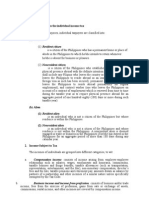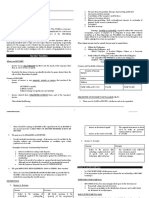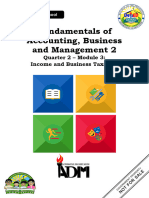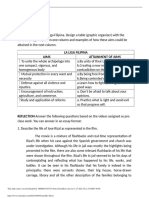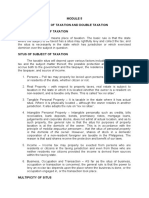0% found this document useful (0 votes)
31 views3 pagesPassive Income Tax Guide Philippines
The document discusses certain passive incomes that are subject to final tax for individual taxpayers. It outlines items of gross income like interest, royalties, dividends, and capital gains that are taxed. It also defines tax returns, outlines who must file returns, exceptions, filing deadlines, and payment of individual income tax.
Uploaded by
king diyawCopyright
© © All Rights Reserved
We take content rights seriously. If you suspect this is your content, claim it here.
Available Formats
Download as DOCX, PDF, TXT or read online on Scribd
0% found this document useful (0 votes)
31 views3 pagesPassive Income Tax Guide Philippines
The document discusses certain passive incomes that are subject to final tax for individual taxpayers. It outlines items of gross income like interest, royalties, dividends, and capital gains that are taxed. It also defines tax returns, outlines who must file returns, exceptions, filing deadlines, and payment of individual income tax.
Uploaded by
king diyawCopyright
© © All Rights Reserved
We take content rights seriously. If you suspect this is your content, claim it here.
Available Formats
Download as DOCX, PDF, TXT or read online on Scribd
/ 3



















